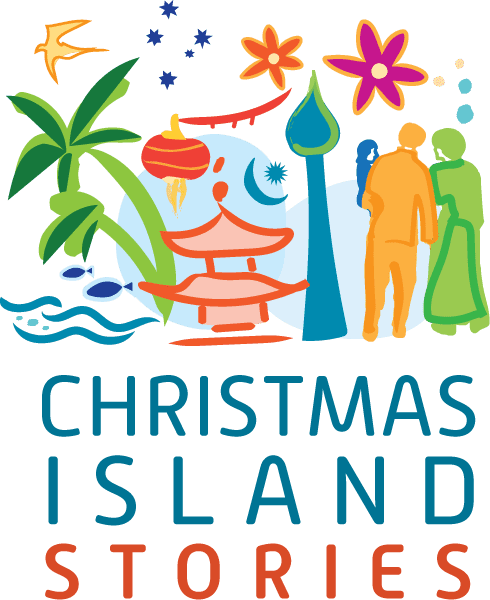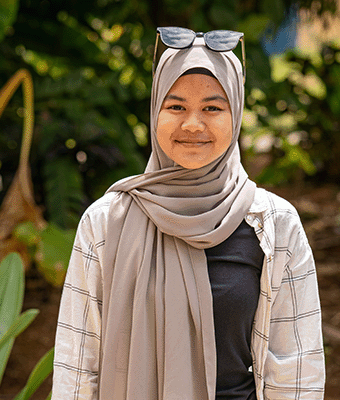Christmas Island Youth
There are schools near the ocean in mainland Australia – with the bulk of its population on the coast that’s a given – but nothing compares to the access enjoyed by students on Christmas Island.
The tiny island isolated in the Indian Ocean depends on its waters for food, recreation, and building its growing tourism industry – it is a constant presence in the lives of its residents in some form or another.
The ubiquity of the marine environment on Christmas Island has filtered into its education system.
Rather than just being a stunning backdrop or a source of a cool sea breeze, Christmas Island’s most popular swimming spot, Flying Fish Cove, is treated as another classroom for the school’s students.
Sarah Faulkner, the deputy principal at Christmas Island District High School (CIDHS), explains how the island’s educators have leveraged that connection to the community to provide unique learning opportunities.
“The ocean is really important to young people here on Christmas Island because they grow up with it, it’s where they learn to swim,” Sarah says.
“This is a classroom for our students, we teach them about the marine environment, the coral, about biodiversity and about different relationships between our ecosystem here.”
In addition to providing formal learning opportunities, Sarah has seen what else the ocean has given to her students.
“I’ve seen over the years students that are really pushing themselves academically in a remote location at a small school and the ocean is where they go to de-stress after exams,” Sarah says.
“I’ve seen them go into the ocean here at Flying Fish Cove in their school uniform and you can just see that stress melting away from them.
“It’s mesmerising to see them floating in their school uniform off the side of the jetty because we know how hard students here work to achieve their best results.”
Not every student’s relationship with the ocean is the same, but it holds a special meaning for each one of them.
Chistmas Island local Fatihah Mohd Fauzi, who graduated Year 12 at CIDHS in 2023, prefers to swim at night when there’s more privacy, but will often come down to the cove on her own to be near the ocean.
“Sitting in front of the ocean on the sand and just listening to the small waves and even the wind around you just really de-stresses me,” Fatihah says.
For Jun Chu, another recent CIDHS graduate, feels closest to the ocean when there’s a physical connection.
“Being in the water it’s a different kind of sensation and it just makes me feel alive,” Jun says.
“It makes me feel like I’m in a different place and that I don’t have to worry so much about everything else that goes on around me.”
Farina Ibrahim, one of Fatihah’s classmates, who has grown up with the ocean on her doorstep, she associates it with strong familial bonds.
“I feel peaceful being near the ocean because all my family is around me most of the time,” Farina says.
“Those are the people I love the most and it’s where we all just hang out together.”
Fellow student Saufi Ahmad Risal views the ocean as a place to socialise, with the calming sound of crashing waves as the backdrop.
“I spend most of my time on the shore or on the platform of the jetty, just talking with my friends and hanging out,” Saufi says.
Other students prefer more active engagement with the ocean through fishing, kayaking or scuba.
For one enterprising youth, Matt Sambell, the ocean provides inspiration for his own range of hand-crafted fishing lures that he shares with the world through social media.
For all that the ocean gives the students of Christmas Island, the relationship is far from one-sided, with a passion for preserving the marine environment proving a common thread.
“Protecting the environment is something I feel really strongly about,” Farina says.
“I want our future generations to be able to play around and have the same experiences I had.”
“Environmental protection is super important on Christmas Island because we have so much diverse wildlife here – we have endemic species of birds, geckoes, lizards, crabs,” Jun adds.
The new Christmas Island marine park had the full support of students seeking any way to protect their unique aquascape.
“I think the marine park is pretty important for our island because it gives us protection for our waters,” Jun says.
“We’re approaching urgent climate change so it’s really crucial to keep our endemic species safe – the marine park is a good step towards achieving that.” Fatihah adds.
Sarah says the school has been intentional about encouraging and nurturing that protective instinct among the island’s youth.
“As teachers, we've been really working on making sure our students understand their role in protecting our natural environment, particularly the marine environment,” Sarah says.
Beyond the purely academic, the school also facilitates hands-on opportunities for students to give back to the environment.
“Something we’ve been doing for a long time is the marine debris audits, which is basically going to our beaches and collecting the rubbish that washes up,” Sarah explains.
More than a simple beach clean-up, the students meticulously record and track what is collected to provide invaluable data to global efforts to reduce debris in the world’s oceans.
“For the last 13 years that I’ve been here, Year 9s and 10s have been acting as leaders and custodians for the ocean and conducting those marine debris audits, facing any challenges that we come up against,” Sarah says.
“We've seen different things wash up, we've seen things that don't wash up anymore.”
Most recently, bits of foam of all sizes have been the most common type of waste to wash up on Christmas Island’s beaches, which requires students to diligently sift the smaller pieces out of the sand to distinguish whether an object is foam or just a small shell.
But whether in the form of aluminium cans, glass bottles, footwear, lightbulbs – and once, the wooden head of a rocking horse – all debris is collected and catalogued.
It might seem miraculous to have a cohort of teenagers so willing to spend time cleaning up their community, but Christmas Island’s unique ecosystem provides ready examples of the difference they are making.
Sarah recalls a particular event at their last audit of Greta Beach that drove the point home.
“Greta Beach is one of the only really sandy beaches where the turtles come back and lay their eggs,” she says.
“At our last audit, we had a turtle hatch up through the rubbish, but a lot of the time they just can’t hatch and the turtles can’t lay when they come to shore because there’s just too much rubbish there.”
Like a baby turtle hatching on Greta Beach, the students who graduate on Christmas Island have a long journey ahead of them as they enter adulthood.
Who knows what the future holds for Saufi, a talented poet, or Jun, whose passion is art?
For some, like Fatihah, pursuing her dream to work in the health sector will force her to leave the safe cocoon of Christmas Island, but like the baby turtle that returns to the same beach as an adult, she will always feel the pull of home.
Through the new marine park and the efforts of educators like Sarah and the students that follow in her footsteps, the ocean she left will hopefully be waiting for her when she does.


